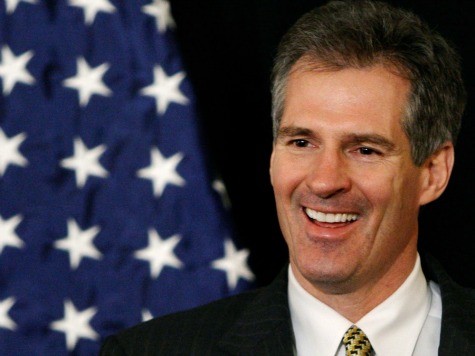
Yesterday, MA Governor Deval Patrick appointed a long-time aide to temporarily fill the vacancy left by John Kerry’s departure for the State Department. The Governor also selected June 25th as the date of the special election to serve out the remainder of Kerry’s term. Democrat and Republican primaries will be held on April 30th. The Democrats look likely to have a hotly-contested primary fight.
Long-time Democrat Congressmen Ed Markey and Steve Lynch have each announced their candidacies for the Senate seat. Markey is a fairly typical Northeast Democrat, compiling a reliably liberal record over his many years in office. Lynch, however, is much more moderate in his views. He is strongly pro-life and opposed ObamaCare. He has long been a supporter of gun rights, although he recently expressed support for Obama’s recent gun control initiatives.
Markey will likely use these issues against Lynch in the Democrat primary. Lynch’s positions, however, could resonate with a block of blue-collar Democrats, especially given his background as a former ironworker. The primary special election at the end of April will have relatively low voter turnout, making it difficult to handicap the results.
For now, though, the Democrat primary is something of a sideshow. All eyes are on former Sen. Scott Brown to see if he runs for the seat. Brown lost his reelection to Sen. Elizabeth Warren in November, but remains popular in the state. Exit polling in November showed that Brown had a 60% approval rating, even as he was headed to an 8-point loss. He was a victim of the Presidential cycle and the heavy turnout generated by the Obama campaign.
A recent poll from MassInc found Brown with a 23-point lead over Markey, who isn’t well known outside his Congressional district. If Brown chooses to run, the race would automatically generate a great deal of national interest. Brown rode a wave of opposition to ObamaCare to capture the seat in 2010, becoming the critical vote needed at the time to block the law in the Senate.
While the circumstances today are certainly different, Brown still maintains a lot of goodwill among national activists. The race could serve as a harbinger of the competitive 2014 cycle, as his race in 2010 did then. Brown, however, could forgo the race and focus instead on the open Governor’s office next year. He could probably better impact policy from Boston, rather than Washington.
If Brown declines to run, then the Democrat primary will likely decide the next Senator from Massachusetts. That race will be a fascinating battle between old-line Democrats and the Progressive wing of the party. It will test whether there is still room in the party for diverse policy views.

COMMENTS
Please let us know if you're having issues with commenting.